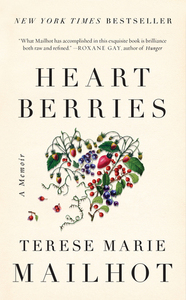Take a photo of a barcode or cover
dark
emotional
reflective
medium-paced
The human condition. The struggle not to allow others to swallow you whole, but to still feel everything. Mailhot's truth is a revelation.
“i wanted as much of the world as i could take, and i didn’t have the conscience to be ashamed.”
this is a story about indigenous identity and pain and feels like a necessary read. it's such emotionally charged and raw writing. everything feels like a punch to the gut and there's so much trauma and despair. it's difficult to read at times, but that's what makes it so poignant and important. she bares all in her writing which is poetic and at times bitter, but always incredible. the turns of phrase and style are evocative and beautiful--especially in chapter seven and onward.
This was a tough one.
Also the most brutally honest memoir I have read in years. Written as letters or journal entries to her now husband this book started the moment Terese Marie Mailhot had herself committed after a nervous breakdown. No. It probably started way earlier, when she was a teen living in foster homes, or way before that, when she was born from an alcoholic father and an absent mother, but nurtured by a grandmother.
Now that I think about it, it does not matter when this book started being written, what matters is how Mailhot addresses becoming. Becoming what? A daughter, a sister, a lover, a mother, a woman, a writer, a woman, a woman. A woman. When she asks herself: “How could misfortune follow me so well, and why did I choose it every time?” I think of the many times misfortune is something we women end up choosing.
Also the most brutally honest memoir I have read in years. Written as letters or journal entries to her now husband this book started the moment Terese Marie Mailhot had herself committed after a nervous breakdown. No. It probably started way earlier, when she was a teen living in foster homes, or way before that, when she was born from an alcoholic father and an absent mother, but nurtured by a grandmother.
Now that I think about it, it does not matter when this book started being written, what matters is how Mailhot addresses becoming. Becoming what? A daughter, a sister, a lover, a mother, a woman, a writer, a woman, a woman. A woman. When she asks herself: “How could misfortune follow me so well, and why did I choose it every time?” I think of the many times misfortune is something we women end up choosing.
challenging
dark
emotional
reflective
sad
tense
slow-paced
Well written, truthful, difficult subject matter
Graphic: Addiction, Child abuse, Domestic abuse, Eating disorder, Incest, Mental illness, Physical abuse, Grief, Death of parent, Colonisation
This book was hard to read, hard to finish, and one that I knew I want to re-read as soon as I did finally finish. The same things that I loved about the book are also what made it a difficult reading for me. The writing style is poetic... not in a lyrical way (though it is that), but in a way that chooses emotion, symbolism, and character over narrative and plot. Her poetic prose are layers that pull you in -- she speaks explicitly to the power of words, and it's clear that she has chosen hers quite purposefully in what she says and in what she doesn't. Ms. Mailhot's memoir pulled me in and made me feel in ways I did not necessarily want to, and she forced me to face parts of me and us that I would rather glaze over. PS - I especially recommend reading the interview afterward.
I feel bad rating a memoir so low, but I just really did NOT enjoy the experience of this as an audiobook or a book at all. For one, the audiobook narrator was not very good in my opinion, she didn't have much inflection when she was reading which made the intense content of the book seem lesser. Also the way that this is written is very fragmented, which I guess I don't like. You can really tell that she started writing this deep in her mental illness, and I really felt for her at the times when she was saying that she wanted to die but also wanted to live. This book deals with a lot of childhood neglect and abuse, as well as domestic abuse on her end as she would hit her boyfriend after snooping on his phone, and -in my opinion - emotional abuse on her boyfriend's part as he seemed to be gaslighting her at times. I think I might have enjoyed this more if I read it as opposed as listening to it, but I can't be sure.
It's a memoir of First Nations women and part of what I loved about it was her writing about her experience at Institute of American Indian Arts. But, I'm gonna tell you about my experience of it. I loved the way she wrote about her crazy, her wild, her own violence and chaos. I loved the way she showed what happens to a woman wronged, a native woman who falls for a white, academic man, and who is moving through all the complications of power and parenthood and gaslighting and cheating and abandonment and, yes, it's messy and I just loved it. In a visceral way, even if I couldn't understand some parts, which is to say, I loved it, even I didn't quite like it.
Poetic and beautiful and sad and so, so hard to listen to due to the prose changing pace and all of the content warnings.





